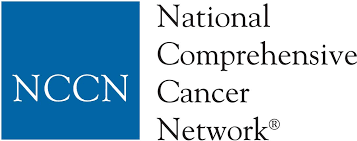NCCN Updates Distress Thermometer and Resource List
 The National Comprehensive Cancer Network (NCCN) has updated its resource for enabling discussion and treatment of distress as part of routine care for people with cancer. The NCCN Distress Thermometer and Problem List is a free resource to help providers worldwide identify and address the unpleasant experiences that may make it harder to cope with having cancer, its symptoms, or treatment. The updated version includes the well-regarded thermometer tool alongside a revamped list of possible physical, mental, social, spiritual, and other practical concerns, to allow care teams to recommend specific resources that can provide support.
The National Comprehensive Cancer Network (NCCN) has updated its resource for enabling discussion and treatment of distress as part of routine care for people with cancer. The NCCN Distress Thermometer and Problem List is a free resource to help providers worldwide identify and address the unpleasant experiences that may make it harder to cope with having cancer, its symptoms, or treatment. The updated version includes the well-regarded thermometer tool alongside a revamped list of possible physical, mental, social, spiritual, and other practical concerns, to allow care teams to recommend specific resources that can provide support.
“Caring for cancer patients’ emotional wellbeing is just as important as addressing their physical symptoms,” said Michelle Riba, MD, MS, University of Michigan Rogel Cancer Center, Chair of the NCCN Clinical Practice Guidelines in Oncology (NCCN Guidelines®) Panel for Distress Management (https://www.nccn.org/guidelines/guidelines-detail?category=3&id=1431). “The NCCN Distress Thermometer makes it more viable to assess people’s distress during routine and unexpected doctors’ visits. With this update, we have made the tool even more streamlined and user-friendly while avoiding words that could be stigmatizing.”
The NCCN Distress Thermometer was first launched in 1997 to normalize and encourage discussion of distress as a standard part of oncology patient visits. This free resource has been downloaded more than 25,000 times in 2021 throughout more than 100 countries. It has also been translated into more than 50 languages.
The updates feature an expanded section on spiritual or religious concerns, as well as revisions to the list of social concerns—including a new option for patients to indicate if they are having difficulties communicating with their healthcare team. The simple checklist also includes revisions to the list of practical concerns, specifically new items related to ability to take care of oneself and others.
“Everyone with cancer experiences some distress at some point; it’s normal to feel sad, fearful, and helpless,” said Robert W. Carlson, MD, Chief Executive Officer, NCCN. “The amount of distress can be very different from person to person, or in an individual at different points throughout diagnosis and treatment. Addressing the impact of cancer-related distress and various underlying causes can help patients achieve their best possible outcome. The NCCN Distress Thermometer opens up a necessary conversation, and the NCCN Guidelines for Distress Management provide evidence-based expert consensus recommendations for managing concerns.”